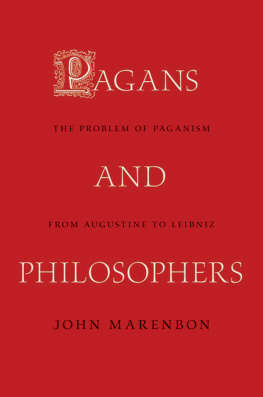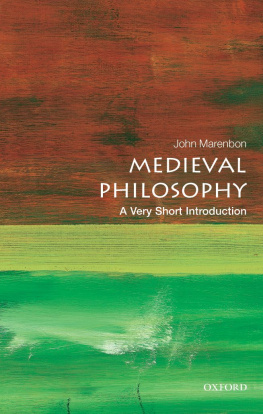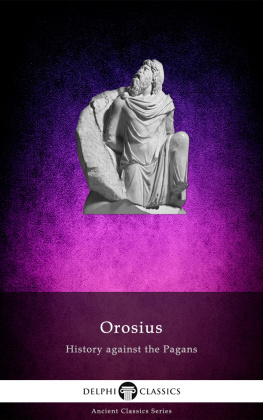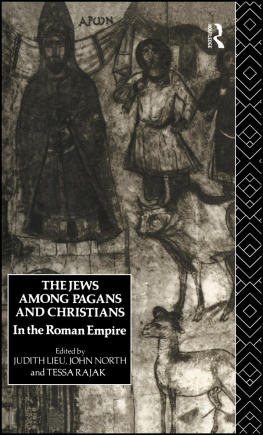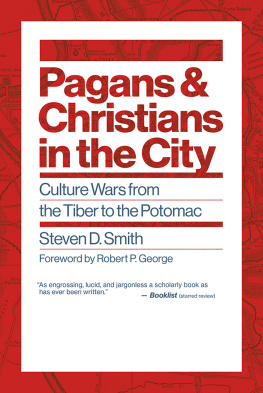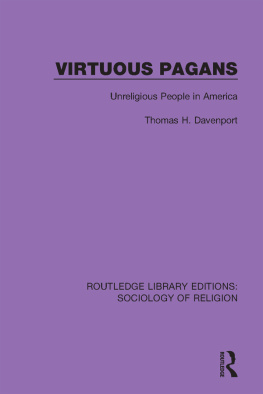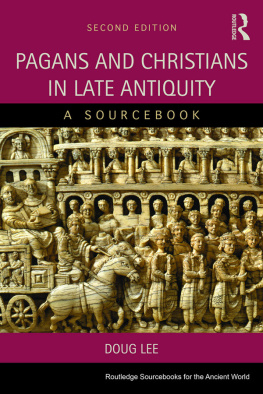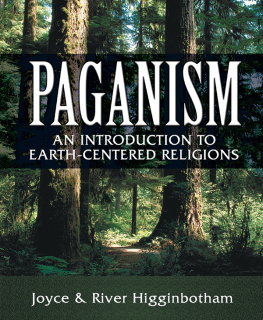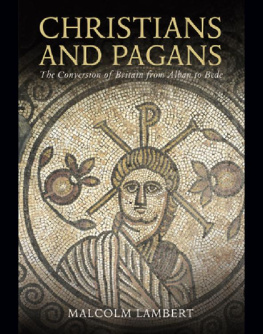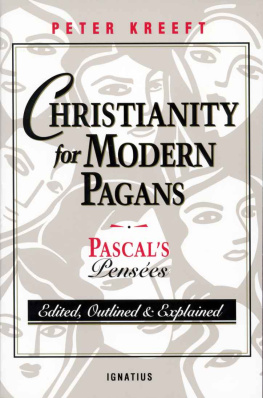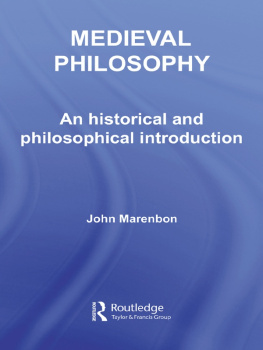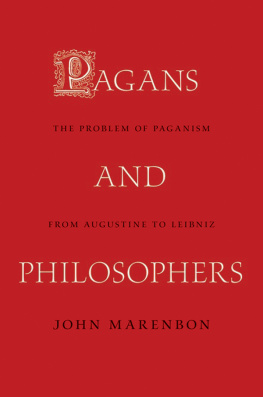Marenbon - Pagans and Philosophers
Here you can read online Marenbon - Pagans and Philosophers full text of the book (entire story) in english for free. Download pdf and epub, get meaning, cover and reviews about this ebook. year: 2015, publisher: Princeton University Press, genre: Religion. Description of the work, (preface) as well as reviews are available. Best literature library LitArk.com created for fans of good reading and offers a wide selection of genres:
Romance novel
Science fiction
Adventure
Detective
Science
History
Home and family
Prose
Art
Politics
Computer
Non-fiction
Religion
Business
Children
Humor
Choose a favorite category and find really read worthwhile books. Enjoy immersion in the world of imagination, feel the emotions of the characters or learn something new for yourself, make an fascinating discovery.
Pagans and Philosophers: summary, description and annotation
We offer to read an annotation, description, summary or preface (depends on what the author of the book "Pagans and Philosophers" wrote himself). If you haven't found the necessary information about the book — write in the comments, we will try to find it.
Pagans and Philosophers — read online for free the complete book (whole text) full work
Below is the text of the book, divided by pages. System saving the place of the last page read, allows you to conveniently read the book "Pagans and Philosophers" online for free, without having to search again every time where you left off. Put a bookmark, and you can go to the page where you finished reading at any time.
Font size:
Interval:
Bookmark:

Pagans and Philosophers
Pagans and Philosophers
THE PROBLEM OF PAGANISM FROM AUGUSTINE TO LEIBNIZ
John Marenbon
PRINCETON UNIVERSITY PRESS
Princeton and Oxford
Copyright 2015 by Princeton University Press
Published by Princeton University Press, 41 William Street, Princeton, New Jersey 08540
In the United Kingdom: Princeton University Press, 6 Oxford Street, Woodstock, Oxfordshire OX20 1TW
press.princeton.edu
All Rights Reserved
Library of Congress Cataloging-in-Publication Data
Marenbon, John.
Pagans and philosophers : the problem of paganism from Augustine to Leibniz / John Marenbon.
pages cm
Includes bibliographical references and index.
ISBN 9780-691142555 (hardcover : alk. paper) 1. PaganismHistory. 2. PhilosophyHistory. 3. Philosophy and religion. I. Title.
BL432.M37 2015
261.22dc23
2014011053
British Library Cataloging-in-Publication Data is available
This book has been composed in Sabon
Printed on acid-free paper.
Printed in the United States of America
10 9 8 7 6 5 4 3 2 1
To the Memory of Jeremy Maule
Preface
THERE IS A STORY BEHIND MY DEDICATION, AND IT TELLS A GREAT DEAL not only of how this book came to be written, but also about its goals. Jeremy Maule, who died fifteen years ago in his mid-forties, was my colleague when my job was to teach English literature to undergraduates at Trinity College. Although the actual writing of this book was almost all done in the past year or so, its origins go back to that time. Paganism had been chosen as an optional set topic for the Medieval English Paper. Since much of my own work was on Boethius and Abelard, the subject fascinated me. But my job was to give not lectures but individual supervisions to Trinity undergraduates: I encouraged them to choose Paganism, but when they came to talk about their essays, there was so much background for me to supply that the sessions turned into a monologue. I looked to see if there was any general book on the area, and there was none. So I wrote to the English Faculty, suggesting I might give a set of lectures on the topic, since none was planned. But my offer was indignantly refused. It was at this point that Jeremy, who was responsible for organizing the teaching at Trinity, stepped in, with the suggestion that I should teach about paganism in the form of college lecturesa form of Cambridge teaching unheard of for decades. I gave them for two years, and then the faculty relented and invited me to make the lectures part of its teaching, until the special topic was changed.
Over the years my views on almost every text discussed have changed, and the range of material I covered in those lectures is only a small part of what I consider in this book. Yet they have shaped its content and aims in three ways. First, by being asked to think about the topic of (simply) Paganism in medieval writing, I quickly saw that there was an important theme of which recognized topics such as pagan virtues and the salvation of pagans are just the disparate parts: I realized that there was a Problem of Paganism, even before I coined the name for it. Second, because the Medieval English Paper stretched up to 1550, from the start I included in my scope not just the pagans of Greece and Rome, but contemporary pagans, such as the Native Americans. Third, and perhaps most important of all, I was forced to bring together two sides of my work which I had always kept apart: my research and writing on medieval philosophy, and my teaching on medieval literature. I had always known that the philosophers and theologians helped to illuminate the poets, but I came to realize that, on a subject such as paganism, writers such as Dante, Chaucer and Langland also made a philosophical contribution in their own right. For the past ten years, I have been able to devote myself to medieval philosophy, and it is from that perspective that I have written this book. But, thanks to its origins, in writing the book I have discovered a grain in the marble that, without such serendipity, would have remained hidden: a broader conception of medieval philosophy than I could have imagined. And it is particularly fitting that such a project should go back to Jeremys initial encouragement, since he was someone whose extraordinary knowledge, surpassed only by his boundless curiosity, was unfettered by disciplinary constraints.
I am also grateful to Zygmunt Baranski, Delphine Faivre (Carron) and Aurlien Robert for generously letting me see their work before publication, and to George Corbett, from whose writing and conversations about Dante I have learned much. I am especially grateful to Peter von Moos. Not only did he let me see and use his important study of the salvation of pagans and the edition of a treatise on the salvation of Aristotle with which it is being published; he also read the whole of my manuscript after it was submitted to the publisher and gave me very valuable critical comments, as did the two anonymous readers commissioned by the publisher. I hope that I have managed to improve the book thanks to their advice.
The Centre for Medieval Studies at the University of Toronto and the Pontifical Institute for Mediaeval Studies there arranged for me to be a visiting fellow in the autumn of 2010, and gave me the chance to deliver public lectures and organize a series of seminars on the Problem of Paganism: I am grateful to all who attended and discussed my ideas, and especially to John Magee, who made the stay possible and so enjoyable. Ian Malcolm at Princeton University Press, more recently Al Bertrand and Hannah Paul, and most recently (for the production of the book) Debbie Tegarden have all given me both every possible encouragement and support, and I have been greatly assisted by the patient work of my copy editor, Joseph Dahm. My greatest debts of all are to Trinity College, which has given me the means, place and time to write this book, and to Sheila and Maximus, who have not only put up with it and me, but even sometimes let slip that, unlike anything else I have written, my pagans might actually be quite interesting.
Cambridge, 5 March 2013
A Note on References and Citations
WHERE A WORK IS VERY WIDELY KNOWN AND AVAILABLE IN MANY EDITIONS and translations, as in the case of some ancient and patristic writings, and those of Aquinas, reference is made to the internal divisions of the text. Where appropriate, reference to other patristic works is made to Mignes Patrologia Latina (PL), Patrologia Graeca (PG) or, if available, the Corpus Christianorum, series latina (CCSL). Otherwise, references are made to internal divisions (where appropriate) and to particular editions, using the author-date system. Quotations from the Bible are given according to the Douai translation. Otherwise, all translations are my own.
. Usually, the editions provided are the best ones, but sometimes not. This website also provides a list of the best editions of each work.
Pagans and Philosophers
Introduction
T HE P ROBLEM OF P AGANISM
Readers who are puzzled by the phrase the Problem of Paganism should not think that it is famous Problem that has somehow slipped through the net of their reading. It is a newly invented label, and the central contention of this book is that it serves an important purpose. More often than not they are sidelined or hidden, but they are given sustained attention by a number of the most remarkable thinkers and writers of the period.
A P OET, A H EROINE, A P HILOSOPHER AND A C ANNIBAL
Four figures, who will reappear later, will help not just to explain the questions involved in the Problem of Paganism, but also this books scope and method. The first three illustrate, in turn, the three main aspects of the problem: the salvation of pagans, pagan virtue and pagan knowledge. The first of them appears in the opening pages of the most famous of all medieval poems, Dantes
Next pageFont size:
Interval:
Bookmark:
Similar books «Pagans and Philosophers»
Look at similar books to Pagans and Philosophers. We have selected literature similar in name and meaning in the hope of providing readers with more options to find new, interesting, not yet read works.
Discussion, reviews of the book Pagans and Philosophers and just readers' own opinions. Leave your comments, write what you think about the work, its meaning or the main characters. Specify what exactly you liked and what you didn't like, and why you think so.

